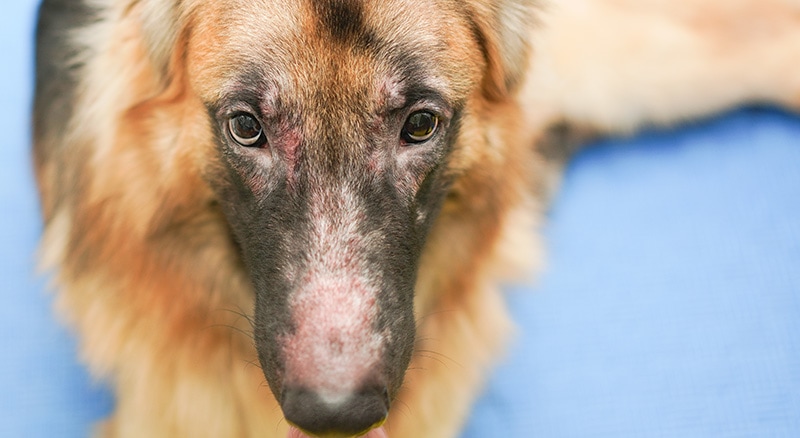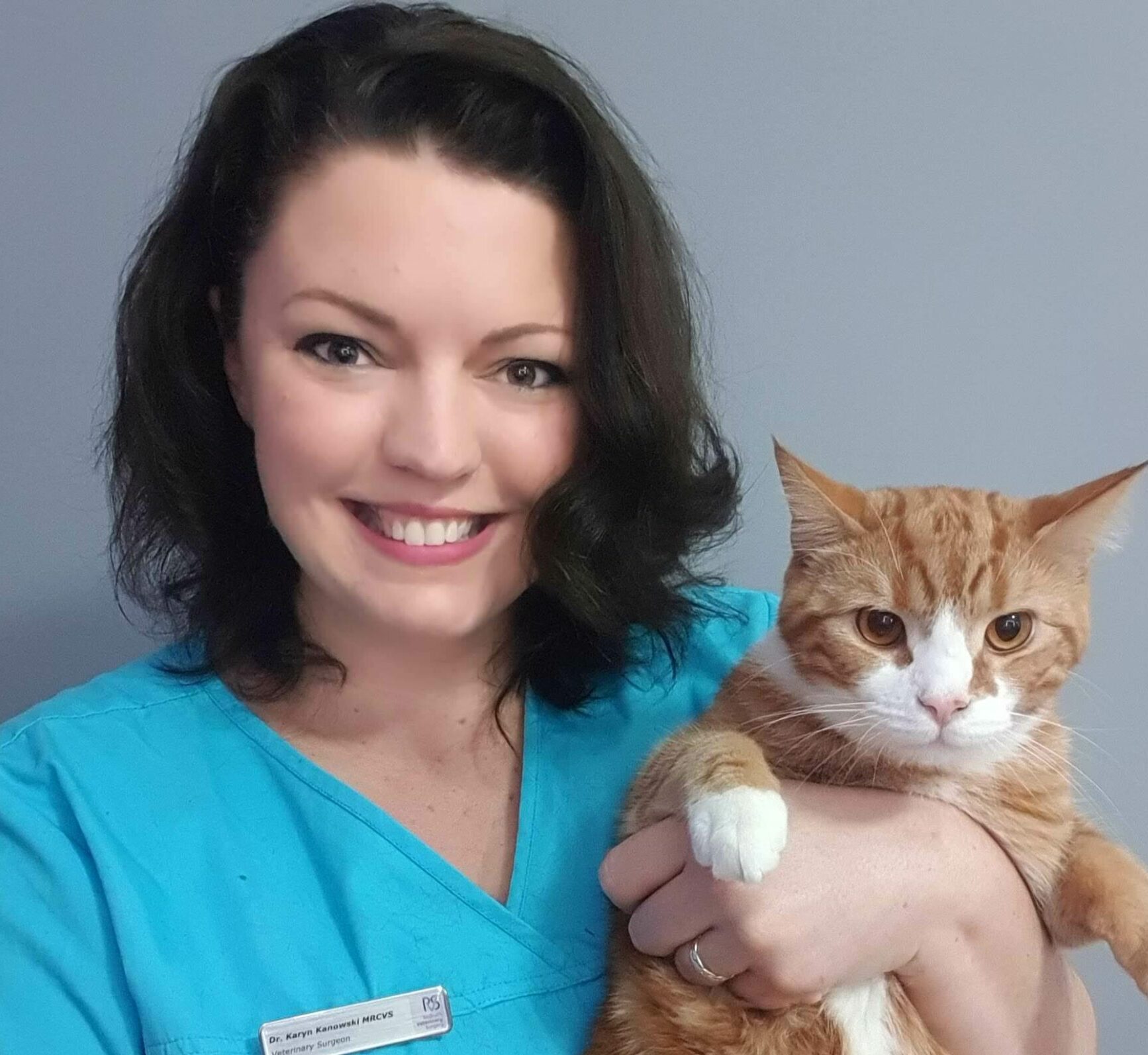Why Does My Cat Smell Like Rotten Eggs? Our Vet Explains Possible Reasons & Solutions

Updated on
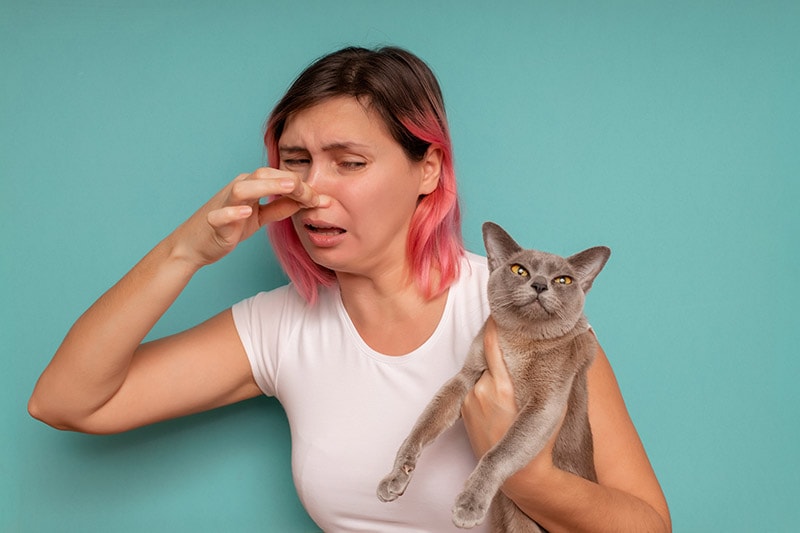
When you think of your cat, you might remark on its cleanliness. So, if your cat smells like rotten eggs, it might come as quite a shock. Why would your cat smell like sulfur, and is there anything you can do?
Possible Reasons Why Your Cat Smells Like Sulfur
We don’t commonly associate our pets with the smell of sulfur, but if you’ve noticed it, it’s not something you’ll probably let slide for long. While some cats might smell like sulfur due to their diet, some health issues can also be associated with the smell of rotten eggs that should be addressed.
1. Gas
The most common reason your cat might smell like rotten eggs is gas. That’s right: your cat can fart. An occasional bout of gas is usually not anything to worry about. Still, if it’s happening regularly, it could be cause for concern.
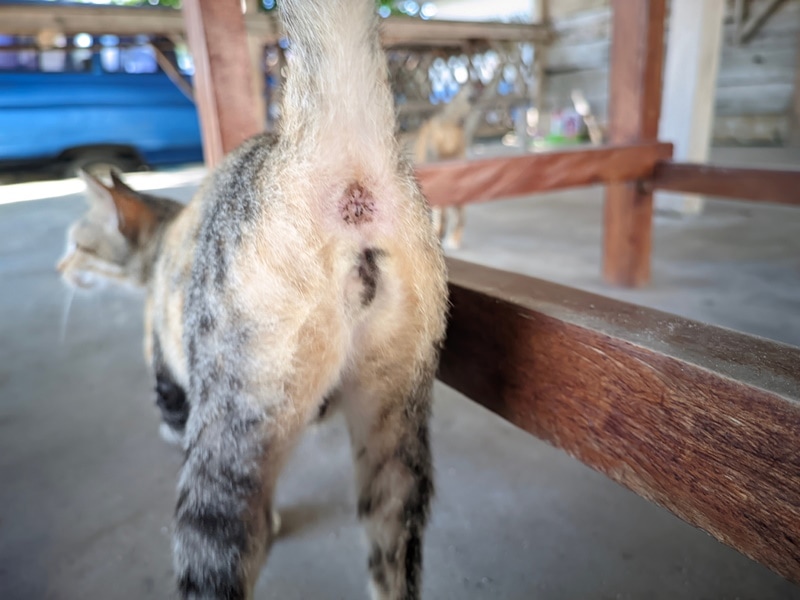
2. Anal Gland Problems
Your cat has anal glands, which are scent glands located on either side of the rectum at roughly 4 o’clock and 8 o’clock. The glands have small openings that allow your pet to secrete an often foul-smelling substance used in scent marking. The anal gland secretions are often described as smelling fishy, but they can have a rotten egg scent to them.
Most cats express their anal glands naturally, but pets that are overweight or have other health issues, such as arthritis, may have more trouble expressing their glands. If you only smell it occasionally and your cat isn’t showing other signs, including scooting or chewing at their tail, you likely don’t have anything to worry about.
A common cause of a brief whiff of sulfur coming from your cat is due to a surprise; your kitty gets startled and expresses its anal glands.
Anal gland issues can develop when your cat has an anal gland infection or if an anal gland or perianal mass is present. Your veterinarian can diagnose anal gland issues during a physical exam. They’ll generally need to perform a careful rectal exam on your cat to see if the glands are full, thickened, or otherwise irregular. They can also express those glands at the same time.
3. Poor Gut Health
If your cat’s intestinal microbe balance is off, it might emanate a rotten egg smell from its back end. Like your gut, your cat’s gut balance relies on the populations of different organisms to remain in check. If your cat’s biome gets overwhelmed and unhealthy bacteria proliferate, your cat might have a sulfur smell.
Certain intestinal infections, such as protozoal infections like Giardia and Trichomonas, can also cause your cat to have soft stools and smell like rotten eggs.
Are you noticing that your cat’s stool is softer or unformed? Is your cat going to the lower box more frequently than usual? If you see these signs, you should contact your veterinarian for an exam and bring in a fresh fecal sample for a parasite exam. Sometimes, your vet will send the sample to a lab for further analysis.

4. Diet
Your cat’s diet can also contribute to how it smells. Cats are obligate carnivores and require a diet high in protein. If your cat has issues with specific proteins, such as a food allergy, it can contribute to bad smells. Sometimes, eating fish-based proteins can contribute to a fishy smell.
If your cat’s diet is higher in carbohydrates or fiber than its gut can readily digest, its gut bacteria may ferment the carbohydrates and produce more methane and sulfur. Cats are natural hunters, so you should investigate if they’re scavenging for other foodstuffs. Have you found bird feathers on the back porch or pieces of vegetable remnants remaining on your kitchen floor? Could your cat be eating something different than their balanced diet?
Your veterinarian must thoroughly examine your cat to determine other potential causes of a rotten egg scent. Make sure you mention anything your cat might be eating.
5. Other Infections
If you notice odd smells coming from your cat, it’s vital to have them evaluated by a veterinarian. Some conditions may be readily evident, such as a skin infection, but mouth infections can be much more complicated for the untrained eye to detect. Your veterinarian can perform a nose-to-tail physical exam and assess your cat for issues like gingivitis or broken teeth that could contribute to the smell.
As weird as it might be, note when and where you notice the sulfur smell coming from your cat. Is it right after they go to the litter box or after eating? Does the smell come from their toes or closer to their tail when they walk in front of you?
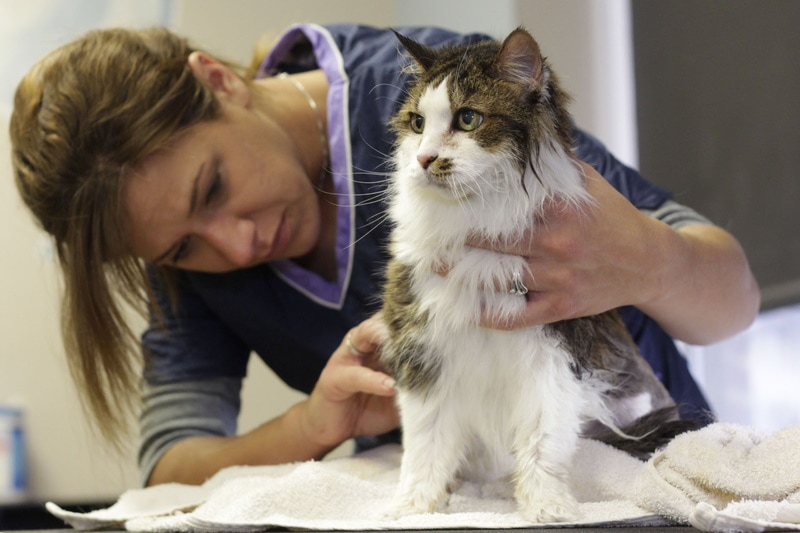
Treating Your Cat If They Smell Like Rotten Eggs
Your veterinarian will help create a treatment plan after performing a physical exam on your feline family member. If it’s just a matter of expressing their anal glands, the vet can usually express them then and there. Gut, skin, and anal gland infections might be treated with antibiotics, probiotics, or even anti-parasite medications.
Some conditions may require more intensive management. Your cat may need to lose weight and exercise or follow a stricter diet that eliminates certain ingredients.
Conclusion
If you notice a rotten egg smell coming from your cat once in a blue moon, it could be from a fart or your cat expressing their anal glands. If it’s something you’re noticing constantly, you should contact your veterinarian to examine your cat and try to get to the root of the sulfur smell.
Featured Image Credit: Stanislaw Mikulski, Shutterstock






